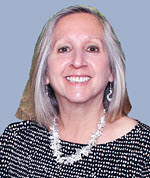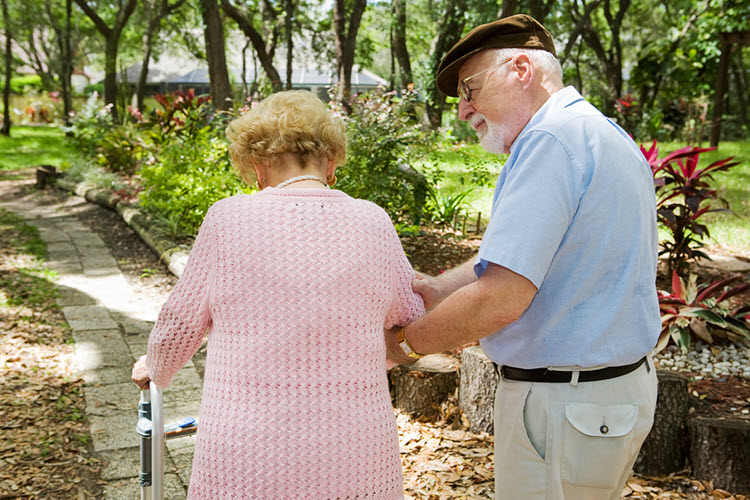Once again, we can learn from our Holocaust Survivors.
Fay Ross, Holocaust Survivor Services Coordinator for Jewish Family Services of Middlesex County NJ, helped me understand the caregiving needs of Holocaust survivors. That got me thinking about the vast number of veterans and survivors of other traumatic events, who at some point will need caregiving.
Yes, every person and every situation are different. But I wonder, what can we learn about caring for Holocaust survivors that may be applicable to others? How will caregiving needs differ for our aging veterans with PTSD? How will they be similar? (Jump to Lessons Learned)
Caregivers: Know something about their story.
Read about the history of the event, war or time.
Russia was brought into the war in 1941, so these Holocaust survivors tend to be in their late 70’s to early 80’s. European survivors (Poland, Germany, and Hungary) are older mid-80 to upper 90’s. Why is this helpful? The older the survivor the more likelihood of dementia onset. And that means they may go back in time, reliving the war every day.
Those that survived seem to have something inside them – both mental and physical – that kept them stronger. They survived diseases like typhus that ran rampant through the camps and even in their later years remain in decent health. They came out of this trauma young, got married, had children and lived full and productive lives often without talking about what they went through. Now as seniors, socialization is critical otherwise there is too much time to dwell on the past.
Many survivors can’t talk about the trauma and what happened during that time. As caregivers, the more we learn about what occurred, we are better able to be sensitive to dates or situations they may find stressful.
Common themes for caregivers:
Flexibility
- Flexibility is very important. Because of the rigid schedule in concentration camps, holocaust survivors need to control their environment.
- If they don’t want to shower in the AM, caregivers need to give them that choice and let them control their day.
- Some days getting them to shower may be more difficult, it might be the date that brings back the memory of someone that has passed.
- Don’t force taking a shower, let this be a day for a sponge bath.
- When they do shower, let them have control.
- Total darkness or waking up not knowing where they are can be a trigger. Let them sleep with lights or the TV on.
Dates
- Dates are triggers. Know the history and you can be on top of things like “Kristallnacht” or “the Night of Broken Glass” Two days in 1938 (11/9 – 11/10) which was the organized destruction of Jewish business and homes in Munich.
- Be sensitive to Jewish holidays and the time leading up to them. Those were days that used to be spent with family who are now gone.
- You may not know all the trigger dates, like the day they were taken out of their home, but careful observation and keeping a log can help the next time the date rolls around.
- Anticipating and knowing trigger dates is hard. There are so many, the day the war broke out in their region, or the birthdays of family members who have passed. Forgive yourself and be patient.
Freedom to choose
- Time spent in concentration camps was not only regimented but people’s very identity was taken from them. The freedom to do what they want, when they want is very important and must be balanced with safety.
- In every way possible, give them the freedom to choose where they go: store, concert or out to dinner with friends.
- Give them the freedom to structure their day. It is precious to them. In one example Fay shared with me, a survivor went to multiple stores each day with her caregiver to buy the freshest produce, bread or meat from each store.
Food
- Fresh food is important to them, you will not find it being wasted.
- Fay hosts a monthly social event, ‘Café Europa’, and has learned to have plastic bags available to package up the food and send it home with the seniors. This behavior is also true of elders who lived through the Depression. For years, we’ve called the little pats of butter mom takes home from restaurants her “senior butter”.
- Educate yourself on what it means to keep kosher.
Lessons Learned:
Jewish Family Services (JFS) functions at a national level like a trade organization. They do not provide funding or guidance to your local Jewish Family Services organization. Each JFS across the country is independent, with their own mission statement, so services they offer will be different. In New Jersey, JFS organizations are found at the county level.
What is true of every JFS organization is that they provide a multitude of services to both Jewish and non-Jewish members of the community. In addition to the special services for Holocaust survivors, JFS of Middlesex County, NJ provides services to all seniors that include: Kosher meals on wheels, geriatric assessments and care management, senior adult activities like lunch programs and social groups and social daycare for the cognitively impaired.
This organization is an amazing resource for everyone. Simply Google Jewish Family Services with your zip code and the nearest organization will pop up.
JFS Holocaust Survivor Services: The goal of this program is to keep survivors at home, by providing services that help make this a reality. Services are funded by the Claims Conference, an organization that provides reparation money from Germany that is available to survivors around the world. Additional funding is provided by The Jewish Federation in the Heart of New Jersey and the State of New Jersey. The bulk of financial assistance goes to home care. There is money available for emergency medical needs such as dental work or hearing aids. Free transportation to the facility for daycare helps combat isolation. Transportation is also provided for medical and dental appointments and shopping. In addition, Fay runs a monthly social luncheon (Café Europa) with food, entertainment and transportation.
For people to qualify for Claims Conference funded services, survivors are given a comprehensive assessment which includes a detailed Diagnostic Assessment. Survivors must also provide financial documents since the Claims Conference has limits on income and asset levels that a survivor may not exceed. Each applicant must provide paperwork on their whereabouts during the years of 1933-1945. The Claims Conference researches to make sure the applicant is a Holocaust survivor. Once Fay is given the OK, services are provided.
At the end of our conversation, I asked Fay, “What would you like people to know?” Her response? “These are educated people over 70 years of age. The population is dying but the atrocities are not. Similar things that happened to these seniors, are happening today in Syria and other places. History repeats itself if we don’t work to change it. We must take action by telling their story, volunteering, being the voice for the people suffering.”
אָמֵן – Amen

Prior to joining JFS, Ms. Ross spent more than 20 years in increasingly responsible positions utilizing her MSW degree and LMSW and LSW licensures to achieve positive results for the NJ and NY organizations and clients she served. Fay is a tremendous asset to JFS and the Holocaust survivors she cares for.
Disclaimer: The material in this blog is for educational purposes only. It is not intended to replace, nor does it replace, consulting with a physician, lawyer, accountant, financial planner or other qualified professional.

